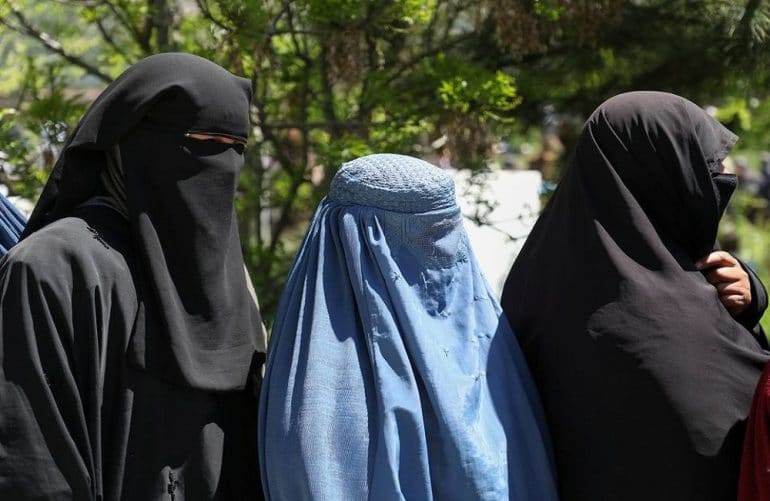A group of about a dozen Afghans demonstrated today, most of them with their faces uncovered, in the streets of Kabul against the Taliban decision to make it mandatory for women to wear full headscarves in public, according to AFP reporters.
"Justice, justice! "The burqa is not ours (cover)", shouted the women, who managed to walk for about 200 meters in the center of the capital, before being stopped calmly by Taliban fighters, who also asked reporters to leave the area. .
The new Taliban decree on the burqa
The government issued a decree on Saturday, approved by the supreme leader of the Taliban and Afghanistan, Haibatullah Ahunjada, ordering women to completely cover their bodies and faces when in public.
The Taliban have clarified that their preference, in the name of 'tradition', is the burqa, the one-piece blanket, usually in blue and with a net at the point of the eyes, but that other types of cover that leave only the eyes can be accepted.
They also said that unless women have a very important reason to move, it is "better for them to stay at home".
"We want to live like humans, not like animals being held captive in the corner of a house," said one of the women protesters, Saira Sama Alimyar.
In the capital, the decree does not appear to be coming into force immediately, with several women continuing to walk the streets with their faces uncovered, or hiding it with the help of a mask.
The United Nations is complaining
These new restrictions, denounced by the United Nations and the United States, confirm the radicalization of the Taliban, who initially sought to show a more open face during their previous ouster of power between 1996 and 2001. women almost all their rights, mainly imposing the use of the burqa.
However, the Islamists quickly backed down from their commitments, largely barring women from public employment, denying them access to secondary education or restricting their right to travel.
In the last two decades, Afghans have gained new freedoms, returning to school or applying for jobs in all fields of activity, although the country has remained socially conservative.
Source: RES-EAP
